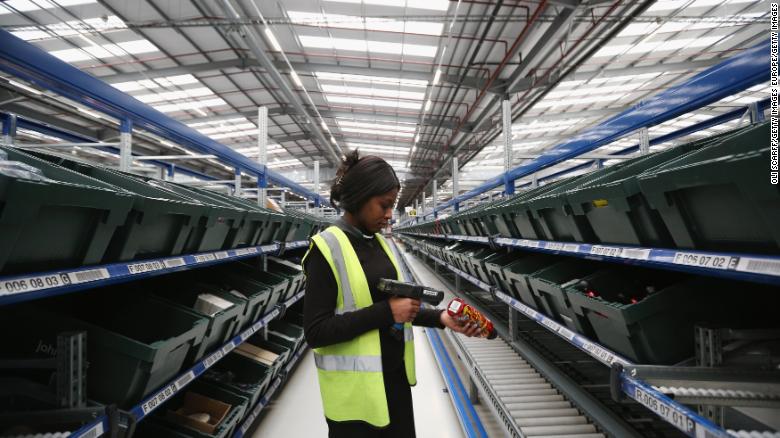Malls are struggling. But stores in airports are thriving

Big brands like Moncler, Jack Daniel’s, Colgate and Estée Lauder are expanding their footprints in airports around the world to get travelers to buy impulsively while they wait around for their flights. Earlier this month, Colgate bought Filorga, a luxury anti-aging skin care brand that has become a big player in airports. Colgate (CL) CEO Noel Wallace said the brand would help Colgate enter the “fast-growing and sizeable travel retail channel, particularly in Asia.”Traveler demographics are changing, more people than ever are flying and companies have identified an opportunity to reach Millennials at airports.The airport retail industry is growing at a breakneck pace. Global travel revenue, which includes duty-free sales at airport stores, has tripled over the past 15 years to $69 billion in 2017, according to the Boston Consulting Group.Several trends are lifting the niche market. The rise of budget airlines has opened up airline travel to new passengers. More than four billion travelers flew in 2017, up from under two billion in 2002, Boston Consulting Group found.More travelers are flying internationally, helping airport retail sales in the Asia-Pacific region grow by around 14% a year since 2002. The region now makes up almost half of global travel revenue today, the consultancy said.Airline travel is expected to keep expanding in the coming years, too: Traffic to airports will increase around 8% annually through 2026, market research firm NPD Group predicts.’Right mindset’Travelers have an average of 56 minutes of free time before their flights and typically spend 25 minutes shopping in duty-free stores, NPD Group estimates. Luxury brands, alcohol makers and cosmetics manufacturers are revamping their strategies to draw travelers during that window.”Travelers are in the right mindset,” said Montgomery Wilson, head of global travel retail for Brown-Forman (BFA), the parent company of Jack Daniel’s whiskey and Woodford Reserve. “They are on holidays and they are open to discover and explore new things.”Shoppers in airports are looking for exclusive products to treat themselves and gifts for friends and family, Wilson said. Brown-Forman gets 4% of its annual sales from its “travel retail” unit, and it expects the unit to grow. The company’s sales in the division grew 6% last year and 8% the year prior. The company has been adding new whiskey lines to airports, including its Jack Daniel’s “Bottled-in-Bond” line which is only sold at airports and other international travel locations.For Moncler (MONRF), the high-end Italian clothing company known best for its puffy down jackets, airports represent a key opportunity to reach the “next-gen” of luxury shoppers.Moncler currently has 10 airport stores and plans to add 20 more by the end of next year. It recently opened in Charles de Gaulle in Paris and in Zurich, Switzerland. Moncler also will open a store in Istanbul, Turkey, at its new airport.”We’re investing a lot,” Moncler Executive Director Luciano Santel told analysts in May of his company’s efforts in airports. Moncler is working to create products designed specifically for airports and experimenting with different ways to display the products in smaller airport stores.Beauty and skin care brands are focusing on airports as well.”Travel retail is, to me, the most exciting channel,” Estée Lauder (EL) CEO Fabrizio Freda said in May. The company says that 59% of prestige beauty buyers’ first purchase comes at airports.Estée is investing in advertising at airports, opening up pop-up and flagship stores and adding new shopping options like buy online, pickup at the airport. In Korea, it is testing a concept where products they buy are delivered straight to travelers’ seats on the airplane.Even dying brands such as Brookstone see an opportunity to stay afloat in airports, which have consistent foot traffic.Last year, when Brookstone filed for its second bankruptcy and said it would close all of its remaining 101 mall stores, it kept open its 35 airport stores.




